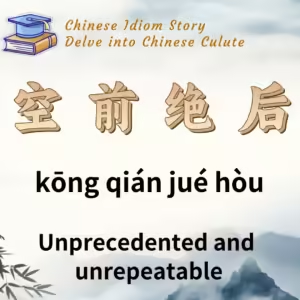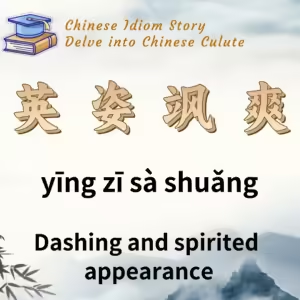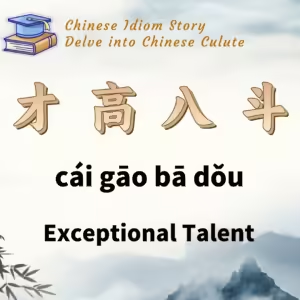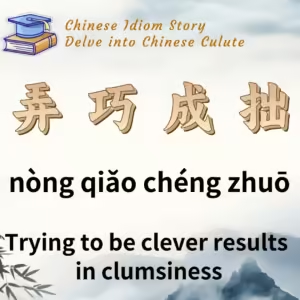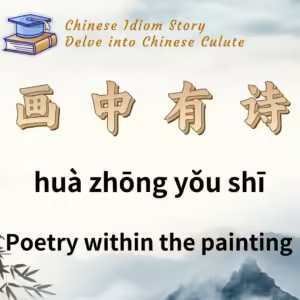
Chinese Idiom: 画中有诗 (Hua Zhong You Shi)
English Translation: Poetry within the painting
pīn yīn: huà zhōng yǒu shī
Idiom Meaning: This idiom describes a painting that is rich in poetic imagery and sentiment.
Historical Source: Su Shi’s commentary in “Dongpo’s Notes on Wang Wei’s Painting of Blue Pass and Misty Rain” (《东坡题跋·书摩诘〈蓝关烟雨图〉》).
Idiom Story:
Wang Wei, styled Mojie, was a prominent poet and painter during the Tang Dynasty, hailing from Hedong (modern-day Yongji, Shanxi Province). He was known for his exceptional skills in both poetry and painting, and many legends surrounded his artistic prowess.
One famous story recounts that Wang Wei painted a piece called “Giant Rock” for Li Fan, the brother of Emperor Xuanzong of Tang. The painting was executed with vigorous brushwork, capturing the essence of nature vividly. Li Fan, a connoisseur of literature and art, cherished the painting and would spend hours immersed in its beauty, feeling as though he had been transported to a serene valley.
One stormy day, as lightning flashed and thunder roared, an extraordinary event occurred. A massive rock seemingly lifted from the painting, crashing through the ceiling and disappearing into the storm. When Li Fan and his family rushed to check, they found the wall where the painting hung was empty; the rock had vanished.
Although this tale is steeped in magical elements and unlikely to be true, it highlights the extraordinary quality of Wang Wei’s art. His paintings are characterized by a tranquil and ethereal quality that evokes a sense of poetry.
Wang Wei was also a master of landscape poetry, often imbuing his verses with visual imagery. One such poem, “Autumn Twilight in the Mountain Dwelling” (《山居秋瞑》), captures the beauty of a rural autumn day with lines that evoke vivid scenes:
Bamboo rustles as the washerwomen return,
Lotus leaves sway as fishing boats descend.
As spring flowers fade away at will,
I wish to linger here, regardless of the season.
In this poem, the imagery of the bamboo and lotus reflects the serene atmosphere of nature. Wang Wei expresses a longing to remain in this beautiful setting, suggesting that nature’s beauty transcends seasonal changes.
Su Shi, a renowned poet of the Northern Song Dynasty, aptly summed up Wang Wei’s artistic legacy with the words: “Taste the poetry of Mojie; within his poetry, there is painting. Observe the painting of Mojie; within his painting, there is poetry.” This encapsulates the essence of Wang Wei’s work and led to the creation of the idiom “画中有诗,” signifying the deep connection between visual art and poetry.

